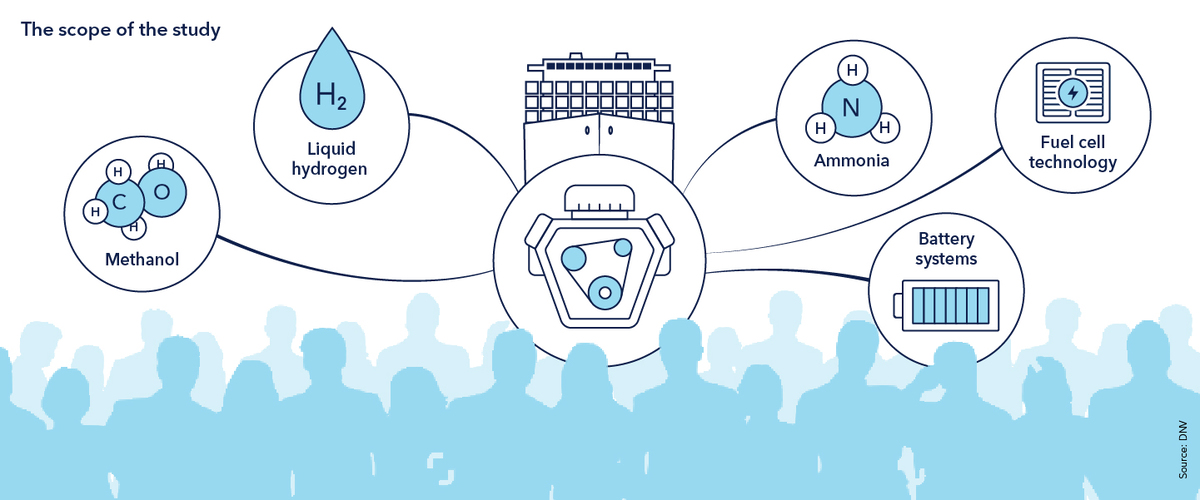Seafarers need special training to support shipping decarbonisation – DNV study
The study conducted by the classification society DNV with inputs from the Maritime Just Transition Task Force reveals that the maritime workforce will require specific training to operate future ships.
 PHOTO: Graphical representation of the scope of the DNV study. DNV
PHOTO: Graphical representation of the scope of the DNV study. DNV
The study includes dual-fuel engines that can run on methanol, ammonia, liquid hydrogen, and new technologies such as hydrogen and ammonia fuel cells.
“Decarbonization and sustainable shipping will require new sets of skills for seafarers in the Tyears up to 2050 and beyond. Alternative fuels involve safety challenges (flammability, explosion risk, toxicity) requiring a safety-first approach by the industry and more advanced safety skills,” DNV says.
It says that some knowledge and expertise to handle alternative fuel technologies already exist in the industry but with rapid development in the sector skill sets need to be upgraded.
In the decarbonisation by 2050 scenario, based on DNV Maritime Forecast, 750,000 seafarers will require training to handle alternative fuels and technologies by 2050.
The study highlights that the lack of clarity surrounding the viability and uptake of alternative fuel technologies as well as the regulatory developments are making it difficult for the industry to plan the training curriculum.
IMO could provide a minimum training framework for alternative fuel technologies, after it develops its guidelines, which can be adopted by maritime training institutes later, it says.
By Shilpa Sharma
Please get in touch with comments or additional info to news@engine.online






